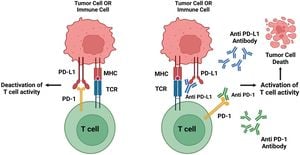The Pé-de-Meia program, launched to encourage low-income students to continue their high school education, is set to resume payments on Tuesday, February 25. Originally suspended due to decisions made by the Court of Auditors, the initiative will now provide financial relief to eligible students once more. The latest round of payments will offer R$ 1,000 to students who have successfully completed a stage of high school by the end of 2024, alongside an additional R$ 200 for those who sat for the two days of the National High School Exam (Enem) this year.
For students who finished high school in 2024, payments will be made according to the following schedule: those born between January and June will receive their funds on February 25, and those born from July to December will see their payments on February 26. Students who completed their first or second year will have their payments made on February 27, regardless of their birth month.
Eligibility for the Pé-de-Meia program targets students aged 14 to 24 from families registered with Cadastro Único (CadÚnico) and currently enrolled in educational institutions, provided they are registered by two months after the school year begins. Students from families benefiting from Bolsa Família are prioritized for this assistance. To qualify for the payments, students must possess CPF (Brazilian tax identification), be enrolled full-time at public high schools, and meet the age requirement.
The Pé-de-Meia initiative is notable not only for its financial contributions but also as part of broader efforts to combat high dropout rates among students during this pivotal stage of education. Participants of the program may accumulate up to R$ 9,200 throughout their high school years. The financial incentives include payments for registration, regular attendance, successful course completion, and additional support for those taking the Enem.
The payments structure consists of incentives such as R$ 200 for confirming registration; R$ 200 monthly for maintaining attendance rates of 80% or higher; R$ 1,000 awarded upon successfully completing the enrolled high school series; and R$ 200 for participating in the Enem. These motivations are aimed at ensuring students remain engaged throughout their educational journeys.
Students can monitor their payment status and receive other important updates through the Jornada do Estudante app, available on both Android and iOS platforms. This application allows users to track payment dates, amounts, and access information about their banking deposits.
Concerns had arisen among students with the program's prior suspension; thankfully, those fears have been alleviated with the confirmed resumption of payments. Those finishing the first, second, or third years of high school will see immediate financial benefits, helping to motivate students toward graduation and higher academic achievement.
On February 24, President Luiz Inácio Lula da Silva emphasized the government's commitment to education through the Pé-de-Meia and other initiatives like Farmácia Popular during his national television address. Notably, he highlighted the significant achievement of over 90% of program participants passing their classes.
“Students who passed will now have access to their payments. And isn’t it remarkable—over 90% of the young people enrolled have successfully advanced,” he noted. He asserted the necessity of these programs as key parts of rebuilding and uplifting communities throughout Brazil, particularly for those who need it the most.
The total available through Pé-de-Meia includes both educational and healthcare supports, collectively aimed at improving opportunities for Brazilian families and students. The government's intention is to create lasting change through these financial incentives and by fostering educational success within the nation.
Until the next phase scheduled for March or early April, when the frequency-based payments start rolling out, students, parents, and coordinators are encouraged to familiarize themselves with the program’s details to maximize participation. This proactive approach is part of the broader governmental strategy to combat educational inequities and improve access for all students.
With the resumption of the Pé-de-Meia program, expectations are high for students as they prepare for another educational year enriched with benefits aimed at their success.



